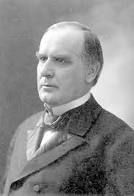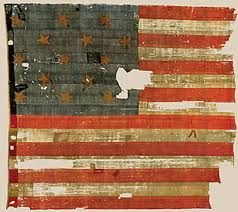“Punting the Pundits” is an Open Thread. It is a selection of editorials and opinions from around the news medium and the internet blogs. The intent is to provide a forum for your reactions and opinions, not just to the opinions presented, but to what ever you find important.
Thanks to ek hornbeck, click on the link and you can access all the past “Punting the Pundits”.
Follow us on Twitter @StarsHollowGzt
Paul Krugman: Rich Man’s Recovery
A few days ago, The Times published a report on a society that is being undermined by extreme inequality. This society claims to reward the best and brightest regardless of family background. In practice, however, the children of the wealthy benefit from opportunities and connections unavailable to children of the middle and working classes. And it was clear from the article that the gap between the society’s meritocratic ideology and its increasingly oligarchic reality is having a deeply demoralizing effect.
The report illustrated in a nutshell why extreme inequality is destructive, why claims ring hollow that inequality of outcomes doesn’t matter as long as there is equality of opportunity. If the rich are so much richer than the rest that they live in a different social and material universe, that fact in itself makes nonsense of any notion of equal opportunity.
Peter Beinart; The Rise of the New New Left
Maybe Bill de Blasio got lucky. Maybe he only won because he cut a sweet ad featuring his biracial son. Or because his rivals were either spectacularly boring, spectacularly pathological, or running for Michael Bloomberg’s fourth term. But I don’t think so. The deeper you look, the stronger the evidence that de Blasio’s victory is an omen of what may become the defining story of America’s next political era: the challenge, to both parties, from the left. It’s a challenge Hillary Clinton should start worrying about now.
To understand why that challenge may prove so destabilizing, start with this core truth: For the past two decades, American politics has been largely a contest between Reaganism and Clintonism. In 1981, Ronald Reagan shattered decades of New Deal consensus by seeking to radically scale back government’s role in the economy. In 1993, Bill Clinton brought the Democrats back to power by accepting that they must live in the world Reagan had made. Located somewhere between Reagan’s anti-government conservatism and the pro-government liberalism that preceded it, Clinton articulated an ideological “third way”: Inclined toward market solutions, not government bureaucracy, focused on economic growth, not economic redistribution, and dedicated to equality of opportunity, not equality of outcome. By the end of Clinton’s presidency, government spending as a percentage of Gross Domestic Product was lower than it had been when Reagan left office.
New York Times Editorial:
Who Will Be Left in Egypt?
Two years after thousands of Egyptian protesters risked their lives to bring down the dictator Hosni Mubarak, the military-controlled government in Cairo is expanding a repressive system that may ultimately be worse than the one Mr. Mubarak built and managed.
On Thursday, with much of the world distracted by Syria, the Egyptian generals and the civilian officials they have appointed extended a countrywide state of emergency for two months. And after overthrowing Mohamed Morsi, Egypt’s first freely elected president, two months ago and trying to crush his Muslim Brotherhood allies, security forces have also begun to round up other dissenters, a chilling warning that no Egyptians should feel safe if they dare to challenge authority.
Richard (RJ) Eskow: The Old Extreme GOP vs. the New Extreme GOP: Whoever Wins, We Lose.
They’re back – and they’re more extreme than ever. GOP House leaders John Boehner and Eric Cantor are still pushing economic ideas disproved a century ago, peddling deep spending cuts that would inflict more misery on the already-beleaguered majority. But that’s not enough for the even more extreme right, for the politicians named Cruz and Paul and Lee, for the groups with names like “FreedomWorks” and “Club for Growth,” and for the moneyed interests who fund them all.
The new Republican right is a tangled nest of snakes. Legislators and observers reach into it at their own risk.
But however beyond the pale these new forces may seem, remember: The fact that their enemies are extreme doesn’t mean that Boehner and Cantor aren’t.
Jon Stoltz: Why Troops Are Against Syria Strikes
One of the common misnomers in the media, regarding Syria, is that it is dual pressure from the far right and far left, that has pushed Congress to seemingly reject any Use of Force resolution before it even came to a vote. When polling shows that 60 percent of people are opposed to the Congressional resolution, it’s tough to say that’s just made up of peaceniks and Tea Partiers.
But, add one more non-fringe group to that list — those who are and have served in America’s military. According to a survey of Active Duty troops from the Military Times, 80 percent of them oppose authorizing military action in Syria. That closely mirrors our own survey at VoteVets.org, where 75 percent of veterans and military family members also oppose action (overall, nearly 80 percent of our full list of supporters, both veteran and non-veteran, oppose action).
Peter Van Buren: What If Congress Says No on Syria?
At every significant moment in those years, our presidents opted for more, not less, violence, and our Congress agreed-or simply sat on its hands-as ever more moral isolation took the place of ever less diplomacy. Now, those same questions loom over Syria. Facing a likely defeat in Congress, Obama appears to be grasping-without any sense of irony-at the straw Russian President Vladimir Putin (backed by China and Iran) has held out in the wake of Secretary of State John Kerry’s off-the-cuff proposal that put the White House into a corner. After claiming days ago that the U.N. was not an option, the White House now seems to be throwing its problem to that body to resolve. Gone, literally in the course of an afternoon, were the administration demands for immediate action, the shots across the Syrian bow, and all that. Congress, especially on the Democratic side of the aisle, seems to be breathing a collective sigh of relief that it may not be forced to take a stand. The Senate has put off voting; perhaps a vote in the House will be delayed indefinitely, or maybe this will all blow over somehow and Congress can return to its usual partisan differences over health care and debt ceilings.
And yet a non-vote by Congress would be as wrong as the yes vote that seems no longer in the cards. What happens, in fact, if Congress doesn’t say no?


 Welcome to the
Welcome to the 


Recent Comments